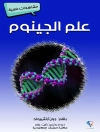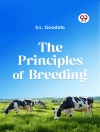Covering newsworthy aspects of contemporary biology—gene therapy, the Human Genome Project, DNA testing, and genetic engineering—as well as fundamental concepts, this book, written specifically for nonbiologists, discusses classical and molecular genetics, quantitative and population genetics—including cloning and genetic diseases—and the many applications of genetics to the world around us, from genetically modified foods to genetic testing.
With minimal technical terminology and jargon, Genes and DNA facilitates conceptual understanding. Eschewing the organization of traditional genetics texts, the authors have provided an organic progression of information: topics are introduced as needed, within a broader framework that makes them meaningful for nonbiologists. The book encourages the reader to think independently, always stressing scientific background and current facts.
Table des matières
Preface: Why Is Genetics Important?
1. What Are Genes?
Try This at Home: Extract DNA from Vegetables in Your Kitchen
2. Inheritance of Single-Gene Traits
3. Mendelian Traits in Humans
Try This at Home: Pedigree Game
4. From Genes to Phenotype
Try This at Home: DNA Replication, Transcription, and Translation Game
5. Using Bacteria as Protein Factories
6. Genetically Modified Plants
7. When Things Go Wrong
8. Mutagens, Teratogens, and Human Reproduction
9. Linkage and Mapping: Gene Discovery
Try This at Home: Independent Assortment of Chromosomes and the Making of a Unique Individual
Try This at Home: Explore Genetics Databases
10. Genetics of Populations and Genetic Testing
11. Survival of the Fittest?
Try This at Home: Demonstrations of the Effects of Small Population Size
12. Nature Versus Nurture
13. Genetically Modified Animals and the Applications of Gene Technology for Humans
Appendix A. Internet Resources
Appendix B. Glossary of Scientific Names of Organisms
Appendix C. Glossary of Human Genetic Diseases
Appendix D. Glossary of Terms
A propos de l’auteur
Charlotte K. Omoto is professor of cell biology and genetics in the School of Biological Sciences at Washington State University. Paul F. Lurquin is professor of genetics in the School of Molecular Biosciences at Washington State University. He is the author of
The Green Phoenix: A History of Genetically Modified Plants; High Tech Harvest: Understanding Genetically Modified Food Plants; and
Origins of Life and the Universe.












